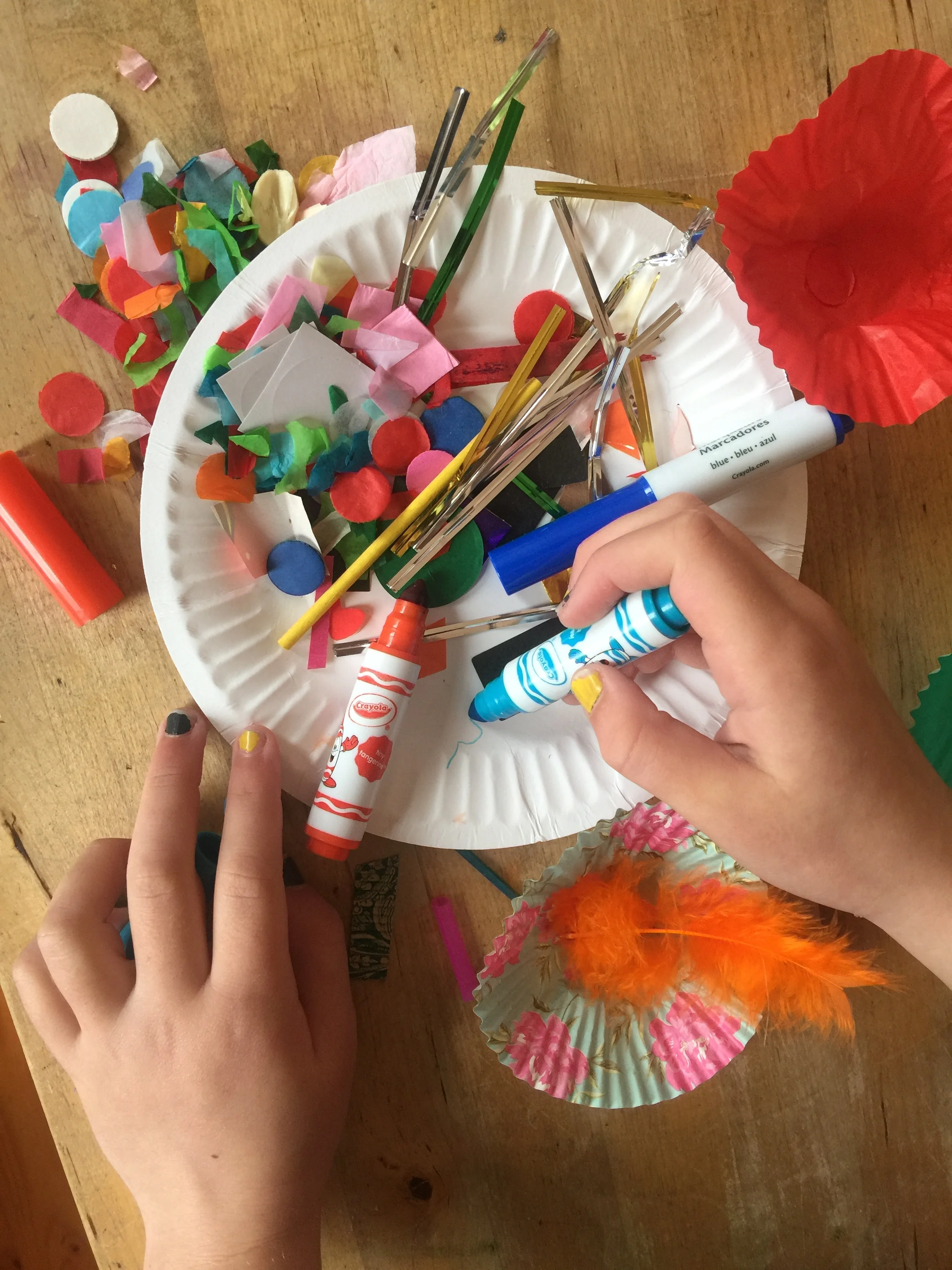Setting the scene for healthy eating
It's pretty hard to make a decision about food these days. Food companies, the government, celebrity chefs, the latest cafe and health professionals seem to all tell us to do different things! How can we decide what is best for ourselves and our families? What suits one family will not always suit another and we're all a little bit different in what we need to thrive. To help navigate through these choices and make good decisions about food, it is helpful to take a step back from the actual food and look at setting the scene for healthy eating first.
In my experience, many people are making plenty of good food choices and creating fabulous food, but it's not equating to good health. This just adds to the confusion about what is "right"!
An important thing to remember in this is that there is no absolute, guaranteed, 100% fail-safe, quick-fix solutions. We're working with children and life after all! They can both be unpredictable at the best of times.
Here are six ideas to help get you started with scene setting.
1. Take a step back and have a look at your own families habits around food.
Do you eat in front of a screen? Do you chase your child around with a plate and a fork, nudging and cajoling them to eat? Do you feed your children, but neglect to eat properly yourself? You can't fix what you don't know is happening. This can be emotionally confronting, and is always best approached with kindness. Remember that what works for one family may not work for yours. Acknowledge that you are doing your best and be open to making changes. Use this as a time to reconnect with your own body, with your child/ren and with real food.
2. Start with a relaxed environment.
This in itself can seem like a ridiculous suggestion at times! Family life is known for being chaotic, but it is very difficult to make good decisions around food when you are feeling stressed out. Kids are the same. If they're feeling pressure, many will close their mouths and refuse to eat...further frustrating parents! Our digestive system is turned down under times of stress, making it difficult to swallow food and digest it properly (the opposite of "fight or flight" is "rest and digest").
Many studies have shown that eating together as a family has amazing benefits. Families connect with each other and sharing food becomes fun and relaxing. Find a way to sit down when you eat. Put aside the dishes and the washing and the emails for half an hour and sit and relax with your family as often as possible at mealtimes. Talk about your day, chat about the world and your ideas.
3. Plan, plan, plan.
I have always been a go-with-the-flow kind of person, rebelling at every turn against routine. I'm now ready to admit that proper planning really is a key to success around food! . This can require setting aside some time, reading some recipe books, visiting the library/blog/book shop for some new ideas, writing an ingredients list and shopping. All these things could definitely go awry with small kids/babies in tow...so just do your best! Do one thing, plan one new meal, then lock it away in your repertoire. Do remember that you might not know what you'll feel like next Tuesday for lunch, so it does still pay to have some flexibility with your plan!
4. Be prepared to fail!
One of the things I hear parents repeat often is that it's demoralising when you put all this effort into making food when the kids just reject it anyway and you've wasted precious time, money and ingredients. This is one of the major rites of passage for all parents. Don't be afraid! It will happen, it's bound to happen and it helps to have a pet dog, or some chickens to eat the scraps when it does (or a Mum or Dad that could be thrilled at having such amazing choices on offer).
In the case of a disaster, it is important to understand what went wrong, but give yourself time and space to work this out. Was the recipe choice not great, was the flavour too new and different or did your child feel too pressured by your enthusiasm and expectation?
Don't give up! Have a nice bath, a cup of tea, a minute to yourself to just breathe, then pick up and carry on.
5. Get the kids to help.
Again I can hear you thinking What????! is she kidding? There are many ways the kids can be involved and they're not all messy!
Order a fruit/veg box from a local supplier and get the kids to help unpack it
Take them food shopping (when they are not tired nor hungry) and let them pick out something fresh. Let them munch on the raw broccoli or beans or an apple
older children can flick through recipe books and come up with ideas. Once they are starting to read, the recipes can be fun to decipher.
let the kids crack the eggs or grate the carrots or chop the mushrooms (working within the parameters of their age and ability)
Get them to draw or describe or write their own recipe!
6. Play with your food!
Invite some friends over and trial a new recipe for them.
Have a BBQ or a picnic and offer lots of healthy choices and then relax as your children pick their own food from what's on offer.
Talk to a friend who has a child that eats well and have lunch together. I have heard countless stories of kids eating food at Nanna's or at childcare or with a friend, that they would never eat at home.
Throw out any ideas and expectations about what your child "should" be doing. Relax and explore new food ideas.
Like any new skill...it can take time to implement these ideas. It requires an enormous amount of energy to make a change. Be comforted by the knowledge that there is no perfect solution. Every body seems to be slightly different in the balance of food needed to create and maintain good health. Just do the best you can manage at any given time and make sure you have time in the day to relax, breathe, get outside and stay creative around food choices.





